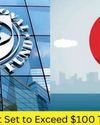The unprecedented floods in Kerala last month resulted in the death of 373. Around 1.2 million people from their homes and hearths were uprooted. They are now in relief camps.

There are estimates of collateral damage: ₹ 20,000 crore or $2.86 billion. The state government has requested aid for ₹ 2,000 crore or $2.86 million. The central government has sanctioned, as reports say, around ₹ 600 crore, which is 30% of what Kerala wanted. The central government has not indicated reasons for the small proportion. Maybe they are waiting for some detailed assessment of the needs. Certainly, austerity is not the reason at this hour of human misery.
Economic problems
The central government has its own economic problems.
They did not stem from nature’s fury. They are man- made: poor governance in public sector banks (PSBs) now for more than three decades or so; the latest infusion of capital in the PSBs which are “in the intensive care”, at the expense of tax payers; rise in crude oil price; low growth in exports; mounting trade deficits; pressure of widening current account deficits on the rupee; excessive reliance on the fickle minded hot money inflows (invested in equity and debt of short-term nature, of less than a year duration) from overseas, which are withdrawn at any time. The last mentioned short term inflows in good times, especially over the last two years or so, helped the country in building up a record level in international foreign reserves, as they reached $426 billion in April. Recent outflows of hot money have resulted in the fall in the value of the rupee.
The only country which accumulated high reserves through a straightforward way was China. All by exports!
Added to these troubles, the latest Turkish lira crisis in the first half of August brought down the values of currencies of emerging economies. On August 16, the Indian rupee reached for the first time the lowest ever at ₹ 70.2 per dollar.
هذه القصة مأخوذة من طبعة September 1 - 15, 2018 من BUSINESS ECONOMICS.
ابدأ النسخة التجريبية المجانية من Magzter GOLD لمدة 7 أيام للوصول إلى آلاف القصص المتميزة المنسقة وأكثر من 9,000 مجلة وصحيفة.
بالفعل مشترك ? تسجيل الدخول
هذه القصة مأخوذة من طبعة September 1 - 15, 2018 من BUSINESS ECONOMICS.
ابدأ النسخة التجريبية المجانية من Magzter GOLD لمدة 7 أيام للوصول إلى آلاف القصص المتميزة المنسقة وأكثر من 9,000 مجلة وصحيفة.
بالفعل مشترك? تسجيل الدخول

Bank of Baroda, Kolkata Zone organised Mega Kisan Melas in West Bengal
Bank of Baroda (BOB) organised Mega Kisan Mela at Konkalitala in Birbhum District of West Bengal on November 18, 2024 as a part of the 7th Edition of the Baroda Kisan Pakhwada (BKP).

Time-Bound Disposal of Cases to Expedite the Delivery of Justice and affordabe by all in India
The delay in the disposal of cases in Indian courts remains a significant hurdle to the nation's progress.

Dev Deepawali: A grand celebration of light, spirituality, and culture in Varanasi
The holy city of Varanasi, often regarded as India's spiritual and cultural heart, came alive with the splendor of Dev Deepawali on the sacred day of Kartik Purnima.

The life of Job 'Ye judge not the judgment of God' - Jesus Christ
The Holy Bible reveals through the life of Job how the Lord tests the righteous and that faith helps one to overcome life's adversities.

India has the highest potential for the garment industry, only a conducive government policy is required.
India's textile industry is poised for remarkable growth, with expectations to double its contribution to the GDP within the next six to seven years.

Global Public Debt may be worse than it appears, warns IMF
Global Public Debt Set to Exceed $100 Trillion, Warns IMF

The economic consequences of Trump's Presidency: A global perspective
One of the key economic factors contributing to the Democrats' loss in the US elections was the significant rise in inflation, which was initially triggered by the COVID-19 pandemic and exacerbated by the Russia-Ukraine war.

Challenges and Successes in West Bengal's Education Sector: A Comprehensive Overview
The education system in West Bengal, particularly in districts, villages, slums, and government institutions, reflects a blend of progress and ongoing challenges.

What India can expect from Trump's return
I may be too early to predict how Donald Trump's second term as president will impact the global oil market.

Stocks Surge Following Donald Trump's Election as 47th President of the USA
Stocks soared following the election of Donald Trump as the 47th President of the United States. Investors anticipated that the Information Technology (IT) sector would benefit from lower corporate taxes under the Republican regime, with IT stocks leading the rally.